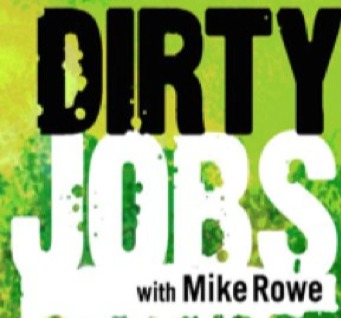Constipation – It’s a dirty job, …
We evaluate a lot of patients with abdominal pain. We are actively search for appendicitis and get a slight sense of self-satisfaction when we diagnose it. Conversely, constipation is many times the default diagnosis in the patient with unclear etiology of abdominal pain – and we have to be honest and admit, that it kind of irks us. But before you dismiss this as “he is just really full of it,” be mindful of a few Morsels:
Constipation is common!
- Estimated that ~5-10% of all pediatric patients have constipation⇒ 2nd most common reason for referral to pediatric GI (~25% of all of their business)
Constipation as consequences!
- Things that we might not appreciate initially but are very important to the patients and their families.
- For one… it hurts
- This pain often leads to medical visits and loss of days of school (and work for parents)
- May become socially disabling
- Hard stools and excessive straining can lead to Anal Fissures and Hemorrhoids (which worsen the problem)
- May also produce rectal prolapse (a very scary phenomena for the family)
- Fecal empaction can produce encopresis (very socially disabling)
- Colonic distention from the hard stool can also lead to complications in itself.
Constipation has Organic Causes (it all isn’t just Functional Constipation)
- Although ~95% of constipation is functional… you don’t get paid for the 95% diagnosis (Grandma can make that call)… you get paid to not miss the other 5%
- Consider some of these entities when you are diagnosing constipation
- Drugs (anticholinergics, antidepressants, antihypertensives, opiates, IRON)
- Hirschprung disease [see previous Morsel] (and other colonic neuropathies)
- Neurogenic (Cerebral Palsy, Spina Bifida, etc)
- Endorcrine (DM, Hypothyroidism, Hyperparathyroidism)
- Metabolic (Cystic Fibrosis, Celiac Disease, Electrolyte disturbances)
- Anatomic (Abscesses, fissures, imperforate anus, anterior displaced anus, strictures from IBD)
- Odds will be in your favor that it is Functional Constipation… but focus on some key points to help increase your ability to detect the Organic Causes
- History that increases the likelihood of an organic cause (document lack or presence of)
- Constipation since birth
- Delayed passage of meconium
- Vomiting
- Hematochezia
- Melena
- Urinary Retention
- Failure to Thrive
- Physical Exam (document some of the following to show that you’ve considered more than just Functional Constipation):
- Sacral Dimple? (Associated with Spina Bifida)
- Anal Wink?
- Abdominal Distension?
- Fecal Mass (often palpable in the LLQ or suprapubic area)
- Anal stenosis?
- Perianal Skin tags? (Associated with IBD)
- Perianal Strep Infection?? (see previous Morsel)
- Neuro Exam! Normal DTRs? Saddle Anesthesia?
- THE RECTAL EXAM
- Generally not necessary.
- It most often does not add to the diagnosis.
- It will be invasive and threatening… and potentially exacerbate an already significant problem the patient has in that general region.
- When to perform?
- In cases where you are more concerned for organic casues or unclear.
- To assess rectal tone – although Anal Wink is pretty good for this also!
- To assess consistency and amount of stool
- Function Constipation – Often Large Hard Stool present with dilated ampulla
- Colonic Neuropathy – Narrow ampulla with scant stool present that is soft.
Treatment for Constipation
- Treatment of Function Constipation requires a Team Approach. We start the process in the ED, but in order to be successful, the patient needs close follow-up and family education.
- Consider your therapy as being a part of al long process and describe it that way to set the family’s expectations. [There are many medications (I’ll refer you to the references which have nice tables… but mention a few here)]
- Disimpaction (for those with h/o stool withholding and fecal mass present)
- Oral, rectal, or combination are effective
- Rectal enemas may not be the best 1st option as they may exacerbate the psychologic problem
- Glycerin suppositories (< 6yrs – one infant suppository)
- Milk of Magnesia (<2yr – 0.5 mL/kg/Day; 2-5yrs – 5-15mL/Day; 6-12yrs – 15-30ml/Day)
- Mineral Oil (>4yrs – 15-30 mL/ year of age)
- MIRALAX (<18mos – 0.78g/kg/Day; 2-11yr – 8.5g/4 oz water; >12yr – 17 g/8 oz water)
- Maintanence (prevent the reaccumulation of stool)
- EDUCATION
- Increase fluid intake, fruits and vegetables, whole grains and fiber [number of grams/Day = kid’s age +5] (Popcorn is an easy way to increase fiber)
- Behavioral modification (sit on toilet for 10 minutes after each meal, positive reinforcement, etc)
- Medications (see above and references) – Mineral Oil is effective!
- Rescue Medication (if there has been no BM in 2 or 3 days) – Stimuant laxative (Senna)
- Disimpaction (for those with h/o stool withholding and fecal mass present)
Montgomery DF, Navarro F. Management of Constipation and Encopresis in Children. Journal of Pediatric Health Care 2008; 22: 199-204.
Bulloch B, Tenenbein M. Constipation: Diagnosis and management in the pediatric emergency department. Pediatric Emergency Care. 2002; 18(4): 254-258.
Youssef NN, DiLorenzo C. Childhood Constipation. J. Clin Gastroenterol 2001; 33(3): 199-205.



Do you use milk and molasses enemas for constipation? I’ve seen providers use them while others stick to glycerin suppositories and miralax.
Rose, I honestly try to avoid enemas entirely (although not always possible). I do not use them as a primary therapy as I think that they often can further complicate the already complicated fear and anxiety the child has associated with her/his anus.
-sean